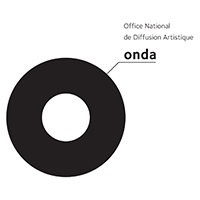Since 2012, Souhail Marchiche and Mehdi Meghari have been exploring the evolutions of street dance, while trying to remain close to the original hip-hop values of sharing, connection and exchange. Their shows En quête (2012) and Dyptik (2014) questioned the theme of identity, before they took a more rebellious turn with Dans l’engrenage (2017) and Le Cri (2018). This cycle began in 2016 with D-Construction, their first open-air, dual-fronted experiment. The metal structure, which is evocative of Jerome Robbins’ chain-link fences for West Side Story, brings forthright questioning of the nature of social relationships in public space. Are we able to challenge the territories, boundaries and institutions that hem us in?
The metal fencing can represent a prison, a cage, a playground, an insurmountable barrier or a place of expression – both a constraint and a source of inspiration that physically draws the audience into the heart of the show. The dancers are permanently in the audience’s gaze, even while they catch their breath. The choreography is constructed and deconstructed with and against this structure.
The 35 minutes of D-Construction carry a rare intensity and power to engage spectators through the energy and improvisation, rebellion and resistance, rush and confusion of the show.
Since 2012, Souhail Marchiche and Mehdi Meghari have been exploring the evolutions of street dance, while trying to remain close to the original hip-hop values of sharing, connection and exchange. Their shows En quête (2012) and Dyptik (2014) questioned the theme of identity, before they took a more rebellious turn with Dans l’engrenage (2017) and Le Cri (2018). This cycle began in 2016 with D-Construction, their first open-air, dual-fronted experiment. The metal structure, which is evocative of Jerome Robbins’ chain-link fences for West Side Story, brings forthright questioning of the nature of social relationships in public space. Are we able to challenge the territories, boundaries and institutions that hem us in?
The metal fencing can represent a prison, a cage, a playground, an insurmountable barrier or a place of expression – both a constraint and a source of inspiration that physically draws the audience into the heart of the show. The dancers are permanently in the audience’s gaze, even while they catch their breath. The choreography is constructed and deconstructed with and against this structure.
The 35 minutes of D-Construction carry a rare intensity and power to engage spectators through the energy and improvisation, rebellion and resistance, rush and confusion of the show.
BIOGRAPHY
Dyptik was established in 2012 in Saint-Étienne by young choreographers Souhail Marchiche and Mehdi Meghari. Its dance work has dual roots, in hip-hop values and in creative dialogue with other artistic movements. In addition to their artistic work, the company is involved in a number of cultural actions based around its creations, including the TRAX festival that it founded in 2014. Its studios in Saint-Étienne are regularly opened up to artists and the public as a place for art residencies and performances. The company’s shows En quête (2012), Dyptik (2014), D-Construction (2016), Dans l’engrenage (2017) and Le Cri (2018) raise questions of identity and rebellion through a powerful and authentic brand of street dance with a focus on relationships, the body and communication. Dyptik are part of a generation that reject the inevitability of living in fear and want to build a new dance style to reflect that.
DISTRIBUTION
Interprétation : Elias Ardoin, Evan Greenaway, Samir El Fatoumi, Yohann Daher, Katia Lharaig, Émilie Tarpin-Lyonnet.
Direction artistique : Souhail Marchiche et Mehdi Meghari.
Chorégraphie : Mehdi Meghari.
Création musicale : Patrick De Oliveira.
Scénographie : Bertrand Nodet.
Régie générale : Richard Gratas.
PRODUCTION
Coproduction : CNAR l’Abattoir / Chalon-sur-Saône, Quelques p’Arts… Centre National des Arts de la Rue – Scène Rhône-Alpes / Boulieu-lès-Annonay, Groupe des 20 Rhône-Alpes – Auvergne, Centre culturel de La Ricamarie, Le Tobbogan – Scène conventionnée Plateau pour la danse / Décines.
Aide à la création : Conseil Départemental de la Loire, Ville de St Etienne, ADAMI, SPEDIDAM.
Avec le soutien : Théâtre de Tardy (Saint-Etienne), École nationale du cirque de Shems’y (Rabat, Maroc), les villes du Chambon-Feugerolles, l’Horme, St Chamond et St Hilaire de Riez.
La Compagnie Dyptik est subventionnée par la DRAC et la Région Rhône-Alpes-Auvergne et la Ville de Saint-Étienne.




